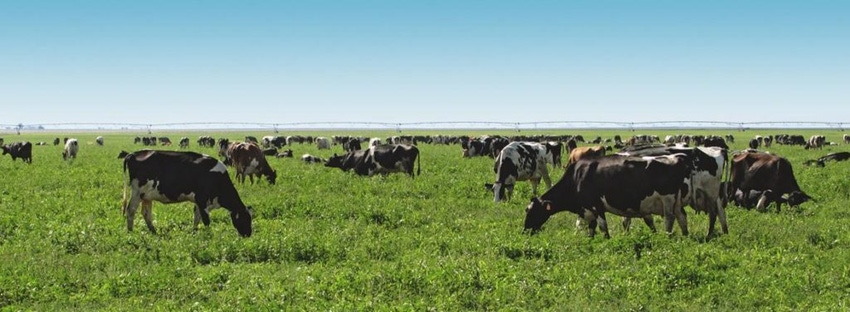Cornucopia challenges grazing practices at largest U.S. organic dairy producer.
May 4, 2017

The Cornucopia Institute filed formal legal complaints against the nation’s largest organic milk producer, Aurora Dairy, and its organic certifier, the Colorado Department of Agriculture, following a report in the Washington Post that challenged the company’s grazing practices.
This is the second complaint Cornucopia has filed against Aurora. More than a decade ago, U.S. Department of Agriculture investigators had found that Aurora was violating 14 tenets of the organic law. At the time, the parties reached a settlement that included a one-year probation and modifying practices at some of the producer's livestock facilities.
Aurora is the largest supplier of private-label, or store-brand, organic milk in the U.S., supplying such retail giants as Walmart, Costco, Target and major supermarket chains for their own proprietary brands.
According to Cornucopia, when Washington Post author Peter Whoriskey and his colleagues visited the largest Aurora dairy complex in Weld County, Colo., they found a "giant feedlot where almost all of the 15,000 cows were confined to dirt and manure-covered pens rather than being out on pasture, as the organic law requires. Through repeated visits over eight days (some up to 10 hours long) and drone and satellite imagery, reporters found no more than 10% of the cattle out on grass — and many times, significantly less,” Cornucopia stated.
Sonja Tuitele, director of communications for Aurora, said Cornucopia’s allegations about the dairy's organic practices are “not informed” and “completely false.” She noted, “Aurora Organic Dairy takes all aspects of organic compliance very seriously and meets or exceeds the requirements of the USDA’s National Organic Program.”
She said she remains confident in the dairy's practices and added that Cornucopia's “complaint was coordinated with the Washington Post article and is almost an exact repeat of claims they made years ago, which were dismissed.”
Cornucopia used the opportunity to again share a story of a number of smaller organic dairy producers that are unable to compete with larger producers such as Aurora, which Tuitele said shows that “their criticism is clearly biased.”
In its press statement, Cornucopia said James Goodman, a longtime organic dairy farmer from Wonewoc, Wis., who milks 40 cows, had his milk price cut, and it's likely to be cut again. “We have lost about 30% of our income in the past year due to this glut of so-called ‘organic’ milk flooding the market," according to Goodman. "My family has been able to make a decent living farming the right way and following the rules USDA has in place, but everyone should have to follow the rules -- Aurora included. I think it’s time for USDA to put an end to this unfair and illegal competition.”
John Boere, who milks approximately 400 cows in Modesto, Cal., could not find a wholesale market for his organic milk and just switched his herd back to conventional feed in April.
“The surplus of milk is so bad here in California that some organic handlers are being forced to divert organic milk onto the conventional market -- at a substantial loss. This contributes to the crumbling farm-gate pricing and for some, like me, being forced out of organic altogether,” Boere said.
The former organic dairy farmer added, “If all organic dairies were forced to get 30% of their dry matter intake (feed) from pasture, as the law requires, there would be a shortage of organic milk, not a surplus.”
The Cornucopia Institute’s letter to Agriculture Secretary Sonny Perdue calls for the removal of National Organic Program manager Miles McEvoy. McEvoy continues to lead the organic program while being investigated by USDA's Agricultural Marketing Service for ethics complaints regarding allegedly improper relationships with certifiers he is overseeing. He has repeatedly refused to take enforcement action against illegal operations on certified organic livestock factories.
You May Also Like


.png?width=300&auto=webp&quality=80&disable=upscale)
